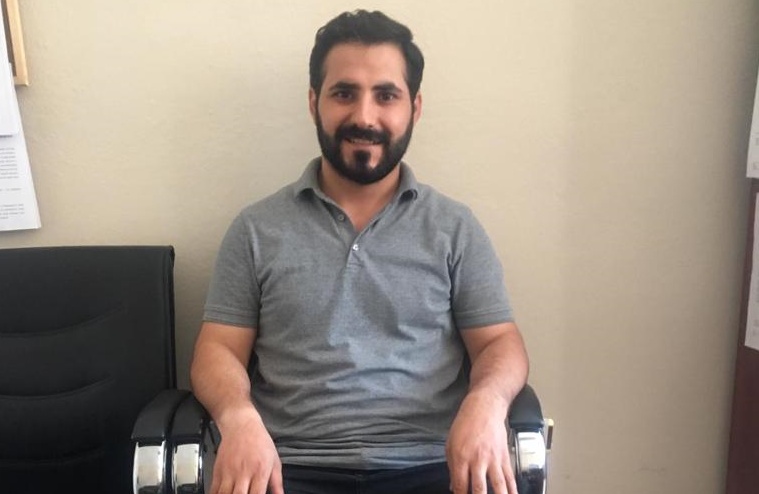Miktad Doğan, 30, an inmate in pretrial detention suffering from a serious liver disease, said he was belatedly taken to the hospital and made to stay in a filthy quarantine cell upon his return, in a letter to the Turkish Parliament’s Human Rights Committee, the Stockholm Center for Freedom reported citing Bold Medya.
According to the Bold Medya news website, during a hospital visit nearly five months ago doctors found that Doğan’s liver was enlarged and overactive. He was diagnosed with Hepatitis B, and the doctors requested his immediate transfer to the Trakya University Hospital. Doğan was taken to the hospital more than a month later despite the urgency of his condition.
Doctors at the university hospital told him he needed an immediate liver biopsy. However, he was only able to undergo the biopsy four months later. Doğan said his illness was progressing and if not treated, it risked developing into cirrhosis of the liver or kidney failure.
“I’m being kept in an unhygienic quarantine cell,” he said. “Even inmates serving aggravated life sentences don’t stay in such cells, whereas I am even though my trial is not even over yet.”
Doğan, a former teacher, is a victim of the Turkish government’s massive crackdown on its opponents. He was arrested in September 2019 for alleged affiliation with the Gülen movement, a faith based group inspired by Turkish cleric Fethullah Gülen.
Turkish President Recep Tayyip Erdoğan has been targeting followers of the Gülen movement since the corruption investigations of December 17-25, 2013, which implicated then-Prime Minister Erdoğan, his family members and his inner circle.
Dismissing the investigations as a Gülenist coup and conspiracy against his government, Erdoğan designated the movement as a terrorist organization and began to target its members. Erdoğan intensified the crackdown on the movement following a coup attempt on July 15, 2016 that he accused Gülen of masterminding. Gülen and the movement strongly deny involvement in the abortive putsch or any terrorist activity.
Following the abortive putsch, the Turkish government declared a state of emergency and carried out a massive purge of state institutions under the pretext of an anti-coup fight. Over 130,000 public servants, including thousands of teachers, were summarily removed from their jobs for alleged membership in or relationships with “terrorist organizations” by emergency decree-laws subject to neither judicial nor parliamentary scrutiny.
Ömer Faruk Gergerlioğlu, a human rights activist and deputy from the Peoples’ Democratic Party (HDP), a left-wing party with majority-Kurdish support, criticized authorities for not releasing critically ill prisoners until it is too late for them to receive effective treatment.
“They refuse to release the prisoners until it comes to the point of no return. They only release the prisoners when they realize they will die soon, not wanting them to die in prison,” he said.
He claimed that prisoners did not have access to proper healthcare facilities such as hospitals or infirmaries.

